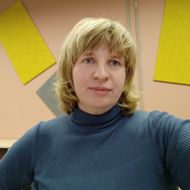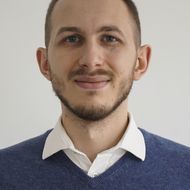Russian Language, History and Culture
3 ECTS
Russian Language
History and Culture
OVERVIEW
The track aims at covering the key aspects of Russian history and culture from the early Middle Ages to the present. The students will be introduced to the main developments, events and actors from the early Rus’, Muscovite, Imperial, Soviet and the post-Soviet periods. In contrast to a vast majority of college-level courses in Russian history that primarily cover political developments, special emphasis here will be put on the often neglected social, cultural and gender aspects of Russia’s historical experience. In addition, the course explores the present-day institutions, actors and events that shape contemporary Russian culture in the global context. You will learn, for example, about St. Petersburg’s rise as a ‘hipster city’ in the 2000s and the functioning of contemporary Russian art institutions. The track will also include Russian language courses adapted for different levels of proficiency. The course will culminate in the session of final project presentations, which will be the result of either individual preparation or group work and independent research on history, culture, and the politics of commemoration in contemporary Russia.
ELIGIBILITY
The track welcomes participants from various backgrounds (Russian studies, History, Cultural studies etc), including those students who are currently studying another subject but who want to broaden their knowledge in this field. Applicants have to meet a standard entry requirement of being at least 18 years old by the time the Research School commences and being able to study in English (language certificates are not required).
MOTIVATION LETTER
Please prepare a motivation letter (up to 1,000 words) addressing the following topics:
1. Your background and previous accomplishments (especially in relation to Russian studies, History, etc.)
2. Your mid- and long-term life and career goals
3. Your expectations for our programme
ACADEMIC TEAM
Academic Coordinator: Pavel Vasilyev
Lecturers: Pavel Vasilyev, Margarita Kuleva

Margarita Kuleva
Division Head, Visiting Scholar, School of Arts and Humanities, Division of Design and Contemporary Art; Associate Professor St. Petersburg School of Social Sciences and Area Studies, Department of Sociology
STRUCTURE
Module 1
Russian Language (groups according to the level of proficiency, 24 contact hours)
Module 2
Russian History (Dr. Pavel Vasilyev, 20 contact hours)
Module 3
Contemporary Russian Сulture (Dr. Margarita Kuleva, 4 contact hours)
Please note
Сhanges to the course syllabus may be made over the coming months before exact set of topics are finalised.
LEARNING OUTCOMES
1. Develop a strong command of written and spoken Russian (according to assigned levels of proficiency);
2. Develop the ability to think critically about major trends and developments in the field of Russian history;.
3. Identify key narratives, actors and institutions of contemporary Russian culture;
4. Plan and carry out an individual or group project related to the field of Russian history, culture, and the politics of commemoration.
FINAL RESEARCH PROJECT
Propose a potential monument, museum object, exhibit or exhibition concept commemorating a person, event or phenomenon related to Russian history and culture. Prepare a presentation describing the reasons for your choice, addressing its historical and/or artistic significance, and its standing in regard to the politics of commemoration in contemporary Russia. This can be an individual or a group project.
ASSESSMENT
The final grade will be comprised of:
- Participation in class discussion – 25%
- Сompletion of the tasks on Perusall platform (analytical reading of assigned texts before each class) – 25%
- Final research project presentation – 50%
Assessment is carried out according to the standard 10-point scale.
Assessment Compliance Scale
READINGS AND MATERIALS
Nicholas V. Riasanovsky and Mark Steinberg, A History of Russia: Combined Volume, 8th Edition (Oxford University Press, 2010)
Nancy Shields Kollmann, The Russian Empire, 1450-1801 (Oxford University Press, 2017)
Ronald Grigor Suny, The Soviet Experiment: Russia, the USSR, and the Successor States (Oxford University Press, 2010)
TRANSCRIPTS, CERTIFICATES AND CREDIT TRANSFER
Those participants who complete the course and sit the final exam will receive a transcript of records and a certificate of attendance. Those who will not be able to sit the final exam, will be provided with a certificate of audition only.
The credits earned upon completion of the course can be transferred to your home university/institution. Please verify with your home university/institution that the credits you get from HSE University can be applied to your curriculum (programme).
